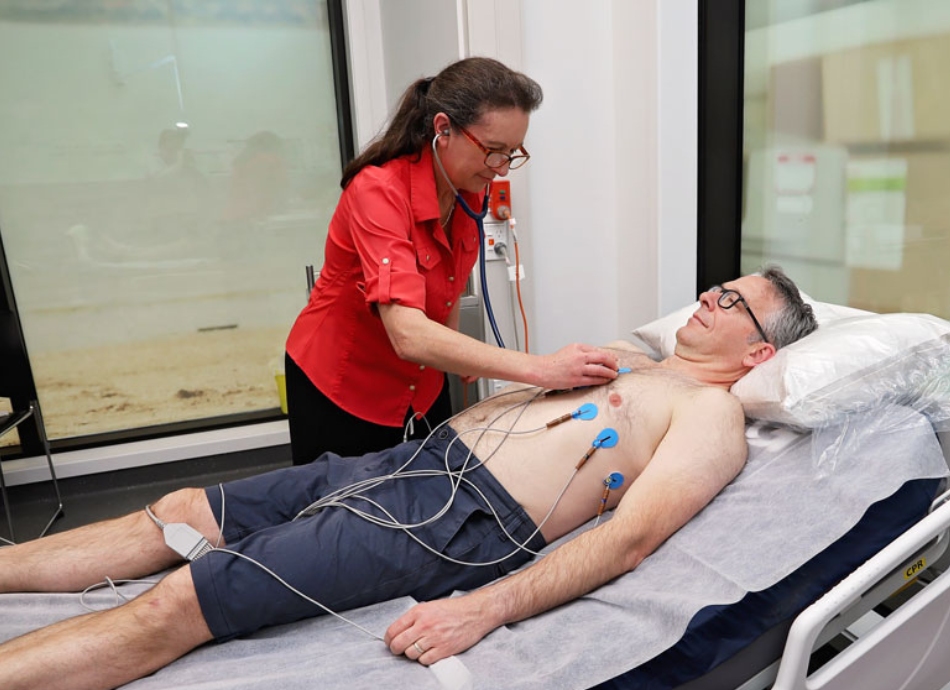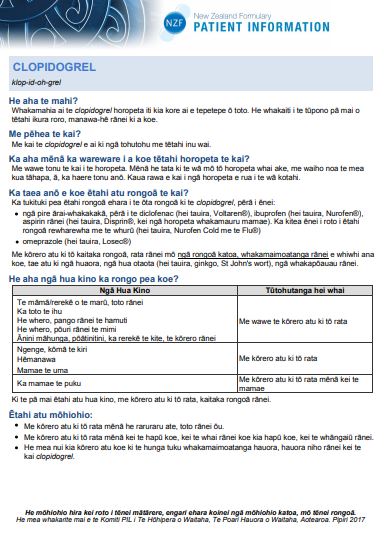Clopidogrel is an anti-platelet medication. It’s used to prevent your blood from forming clots by making it less sticky.
Preventing clots in blood vessels that lead to your brain and heart muscle helps to lower your risk of having a stroke and heart attack.
Clopidogrel is used to prevent blood clots in people who have:
- chest pain (from angina)
- had a stroke or mini stroke (TIA, transient ischemic attack)
- had a heart attack (myocardial infarction) and had a coronary stent fitted
- had ‘bypass surgery’ – after CABG (coronary artery bypass graft)
- peripheral vascular/arterial disease (with a stent fitted).
Use with aspirin or anticoagulants
Depending on what it's being used for and your risk of blood clots, your healthcare provider may prescribe clopidogrel with low dose aspirin OR in combination with anticoagulant medicines such as dabigatran, rivaroxaban or warfarin. Read more about antiplatelets and when they are used.
In rare situations, clopidogrel may be used with low dose aspirin and an anticoagulant medicine.
- These medicines taken together can be very effective in preventing blood clots. But, there’s a higher risk of bleeding. This risk increases with age. See below for signs of severe bleeding.
- Depending on the combination of treatment you are prescribed, you may take it for a few weeks or months. After this, your specialist will tell you which medicines to stop.
- It’s important to check with your healthcare provider which of these medicines you need to stop and when.
Clopidogrel may not work for everyone
When you take clopidogrel, it must be activated in your liver via the CYP2C19 enzyme before it can work. This doesn't work as well as expected for some people because of genetic differences (even if they have a healthy liver). These people will be at higher risk of another stroke or heart attack.
Pharmacogenomic testing can tell you if you have a genetic difference in CYP2C19 which makes you less able to activate clopidogrel. You might need a higher dose of clopidogrel or another medicine to prevent blood clots. Read more about how your genes affect the way you respond to some medicines (pharmacogenomics). Remember, don't stop taking your medicines or make any changes to them, without talking to your healthcare provider first.









